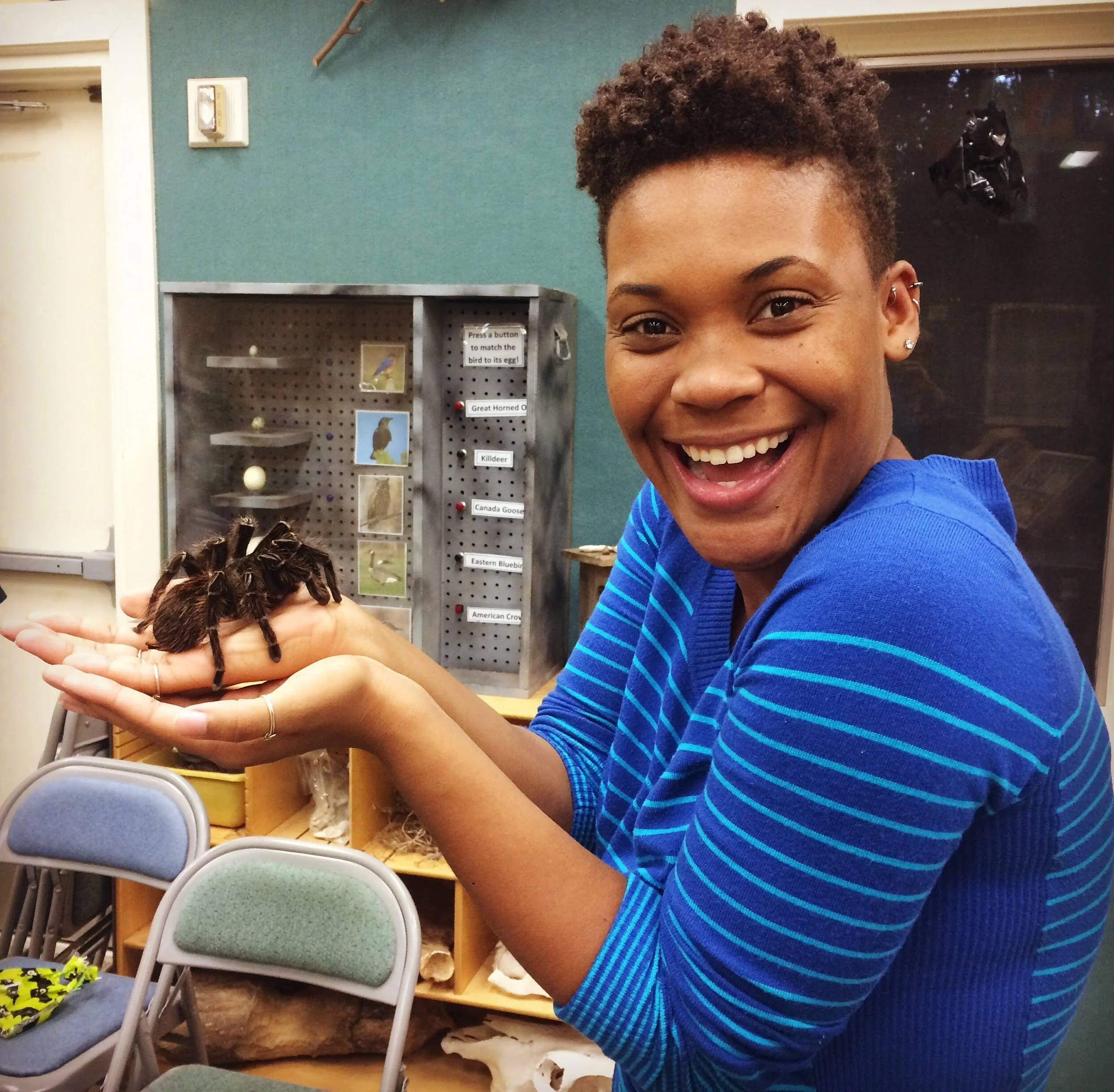Mar 22, 2023
From exploring the beach and San Diego Zoo as a kid to studying kissing bugs in Panama as a PhD candidate, Kaylee Arnold’s path in biology has been a long and winding one. Most recently, it has brought her to St. Louis, where she is joining Washington University’s Living Earth Collaborative as a postdoctoral research associate.
Kaylee is a disease ecologist who studies the impact of anthropogenic disturbances on microbial communities and infectious disease transmission - in other words, how does human activity affect the small-scale workings of microbiomes, such as insect guts or plant roots, as well as the large-scale picture of public health? In this LEC position, Kaylee will be joined by WashU’s Rachel Penczykowski, Tyson’s Solny Adalsteinsson, and SIUE’s Danielle Lee to study these patterns in plant microbiomes and fungal pathogen transmission across an urbanization gradient.
When asked how she felt about the switch from studying kissing bugs to studying plants, Kaylee laughed.
“Honestly, I would be happy doing any type of microbiome work across any disturbance gradients. I worked with insects because that’s what my advisor worked on, and she had everything set up for it. Now I’m doing plants because I got connected with Rachel Penczykowski and was like, okay, well, this is a cool system. I almost worked on river otters for a similar project. So it’s really like, find me some bacteria and I’m happy!”
““I study diseases and public health,” said Kaylee, “so I think communities - especially marginalized folks - should know just as much as I do in terms of what’s going on in the environment and what that means for them.” ”
However, Kaylee’s postdoctoral plans extend beyond research. Along with her three mentors, she is already planning collaborations with local communities to actively involve students in science.
“Outreach is just as important for me as research,” Kaylee said. “I want to make sure I give equal weight to building skills and thinking about how to reach marginalized communities, how to expand literacy and access to STEM. So as I was considering the application process and developing my proposal, I was really excited to have three mentors who all love outreach just as much as I do and all have something unique to bring.”
Though these plans are still in their early stages, Kaylee imagines this outreach as a K-12 program which will integrate kids into her research, with lessons in data collection designed to show students how the scientific process happens from the ground up. She also stressed the importance of clear communication - ensuring students understand the goals and takeaways of the research they are involved in and can use the knowledge to serve their communities.
“I study diseases and public health,” said Kaylee, “so I think communities - especially marginalized folks - should know just as much as I do in terms of what’s going on in the environment and what that means for them.”
About the author
Colleen McDermott is an undergraduate at Washington University in St. Louis studying environmental analysis and writing. They created Placemaking Tyson during summer 2022 and currently serve Tyson as Communications Associate.


